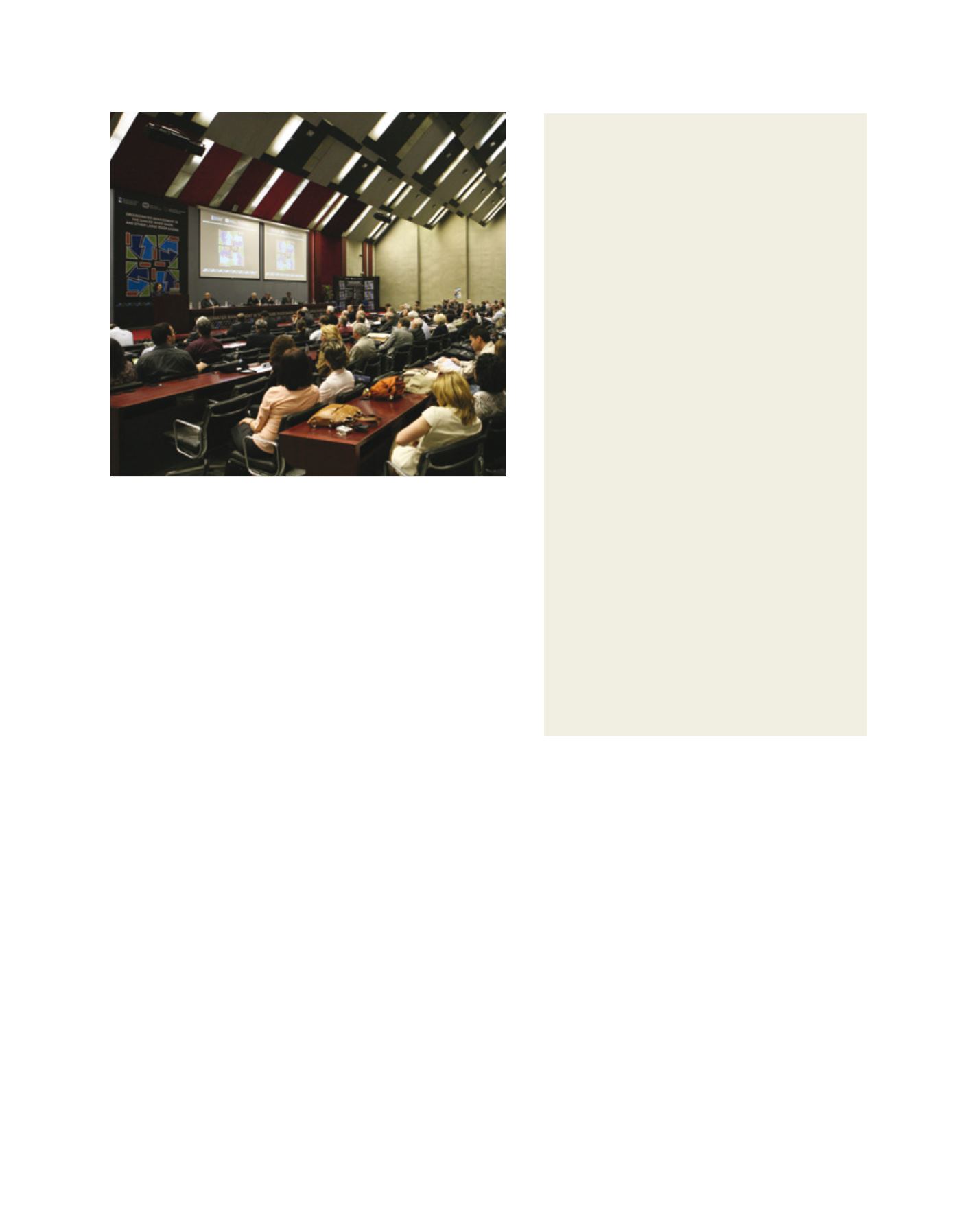

[
] 321
I
nternational
C
ooperation
on
W
ater
S
ciences
and
R
esearch
Ongoing north-south cooperation
JCI has taken part in a number of UNESCO’s ongoing activities.
These include the Training and planning workshop to develop a
roadmap for integrated disaster management in Namibia, in May
2012 - an activity that will continue in late 2013. In May 2012 JCI
took part in the international workshop on implementing modular
curricula for tertiary technical and vocational education in IWRM,
in Kaduna, Nigeria. In March 2013 the institute participated at the
national capacity building workshop on hydro-disaster risk manage-
ment and preparation of a national action plan, in Cotonou, Benin;
and in May 2013 at the training and planning workshop to develop
a roadmap for IWRM and flood risk control in South Sudan.
Memoranda of Understanding have been signed with the Regional
Centre on Integrated River Basin Management in Kaduna, Nigeria;
the UNESCO Chair in Hydroinformatics at Capital Normal
University in Beijing, China; and the International Engineering
Institute of Water and Environment in Ouagadougou, Burkina Faso.
2013 conferences
The ‘UNESCO Symposium-cum-Experts Meeting’ was held in
Belgrade on 9-11 July 2013, covering the following four topics:
• analytical methods for the detection of emerging pollutants and
their transformation products
• toxicity of emerging pollutants and their water-related properties
(degradability, solubility, sorption)
• emissions and treatment of emerging pollutants
• occurrence and fate of emerging pollutants in surface water and
groundwater, and mathematical modelling.
The contributions by leading experts in the matter, including
key recommendations and conclusions, will be soon published
by UNESCO.
From 17-18 October 2013, the centre is organizing the International
Conference on Climate Change Impacts on Water Resources which
will cover the following topics:
• climate change and global changes: factors that
cause them, observed changes and predictions
• the impact of global changes on water resources
– observed changes and different prediction
methodologies (the importance of data quality,
cooperation and monitoring; the impact of differ-
ent factors on river discharges and trends such
as climate change in meteorological data, various
human activities and influences on water resources,
land use changes, and so on)
• water scarcity (water use and agriculture under
global changes; adaptation measures for water
management; frameworks and policies)
• water resources management under global change
conditions (regional and transboundary river
basin management; floods; the role of ecosystem
services and so on).
JCI and its UNESCO Category II Centre will continue
along the path of ongoing capacity development and
enhancement, and regional collaboration.
Networking
One of JCI and the UNESCO centre’s development goals is
enhanced networking with international and national institutions.
JCI maintains close ties with many organizations which also
strongly supported the establishment of the UNESCO centre.
At the international level, JCI has close ties with the following:
• World Water Assessment Programme
• Centre for Ecology and Hydrology, Wallingford
• UNESCO IHE
• International Sediment Initiative
• International Flood Initiative
• World Meteorological Organization (WMO)
• United Nations University
• International Association of Hydrological Sciences
• International Strategy for Disaster Reduction
• International Groundwater Assessment Centre
• European Regional Centre for Ecohydrology
• IHP-HELP Centre
• International Centre for Water Hazard
and Risk Management
• WMO World Climate Program - Water
• Water Technology Center, Karlsruhe
• International Commission for the Protection of the Danube River
• International Association of the Waterworks in the Danube
Catchment Area
• Sava Commission
• Slovak National Committee for the UNESCO-IHP
• Bulgarian National Committee for the UNESCO-IHP
• Water Institute of the Republic of Slovenia
• University of Banja Luka, Faculty of Architecture and Civil
Engineering, Bosnia and Herzegovina
• Hydrometeorological Institute of Montenegro
• University of Skopje, Macedonia, Institute of Biology and
Faculties of Civil Engineering, Forestry, Natural Sciences
and Mathematics, and Agricultural Sciences and Food.
At the national level, ties include the:
• University of Belgrade Faculties of Mining and Geology
and Civil Engineering
• Sinisa Stankovic Institute of Biological Research
• University of Novi Sad, Faculty of Technical Sciences
• University of Nis, Faculty of Civil Engineering
and Architecture.
The IWA Specialist Groundwater Conference in Belgrade, 2011
Image: JCI


















